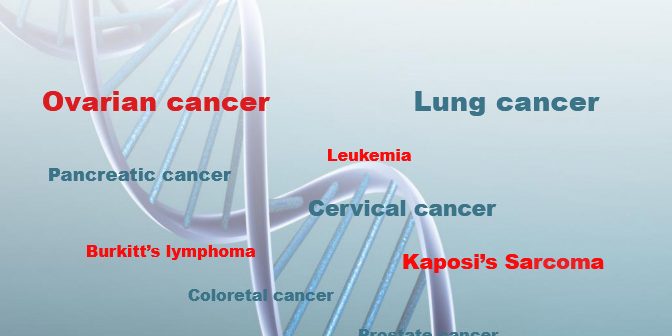The World Health Organization (WHO) released a new Global Breast Cancer Initiative Framework on Friday providing a roadmap to attain the target to save 2.5 million lives from breast cancer by 2040.
The new Framework launched ahead of the World Cancer Day campaign recommends that countries implement the three pillars of health promotion for early detection, timely diagnosis and comprehensive management of breast cancer to reach the targets.
Currently, according to figures published by the WHO in their latest statement, more than 2.3 million cases of breast cancer occur each year, which makes it the most common cancer among adults. In 95 per cent of countries, breast cancer is the first or second leading cause of female cancer deaths. Yet, survival from breast cancer is widely inequitable between and within countries.
Up to 80 per cent of deaths from breast and cervical cancer occur in low- and middle-income countries and, according to Dr Tedros Adhanom Ghebreyesus, WHO’s Director General, countries with weaker health systems are least able to manage the increasing burden of breast cancer.
“WHO is supporting more than 70 countries, particularly low- and middle-income countries, to detect breast cancer earlier, diagnose it faster, treat it better and give everyone with breast cancer the hope of a cancer-free future”, he said noting that the disease places a major strain on individuals and families”.
However, in the statement is another revelation from a study by the International Agency for Research on Cancer which suggests that of the estimated 4.4 million women who died of cancer in 2020, nearly 1 million children were orphaned by cancer, 25 per cent of which were due to breast cancer.
They note that children who lose their mothers to cancer experience health and educational disadvantages throughout their lives, triggering generational, chronic social disruption and financial harm in many cases.
“Countries need to ensure that this framework engages and integrates into primary health care. This effort would not only support health promotion but also empower women to seek and receive health care throughout the life cycle,” Dr Bente Mikkelsen, WHO Director for Noncommunicable Diseases says. “With effective and sustainable primary health care, we can really see a pathway to universal health coverage.”
The newly published outlines three pillars of action with specific key performance indicators. The first one is investing in early detection programmes so that at least 60 per cent of breast cancers are diagnosed and treated as early-stage diseases.
The other pillars include diagnosing breast cancer within 60 days of initial presentation and initiating treatment within three months of the first presentation and managing breast cancer so that at least 80 per cent of patients complete their recommended treatment.
The new framework which could save millions of women from breast cancer according to experts at the WHO comes after the World Health Assembly passed a resolution in 2017 pushing for the same actions for control. Since 2018, WHO has developed integrated initiatives in women’s and children’s cancers, calling also for the elimination of cervical cancer and a doubling of childhood cancer survival.
Taken together, experts say these initiatives can revert the generational harm from cancers and save more than a million lives in the next ten years.


